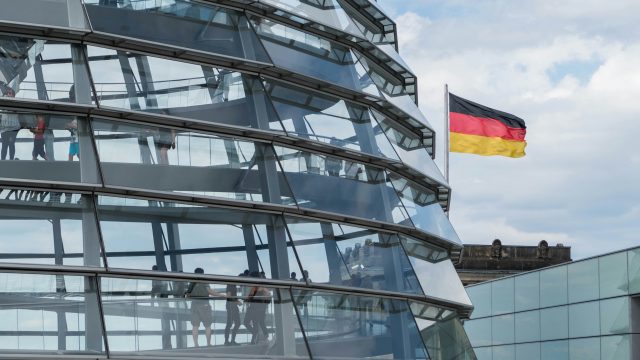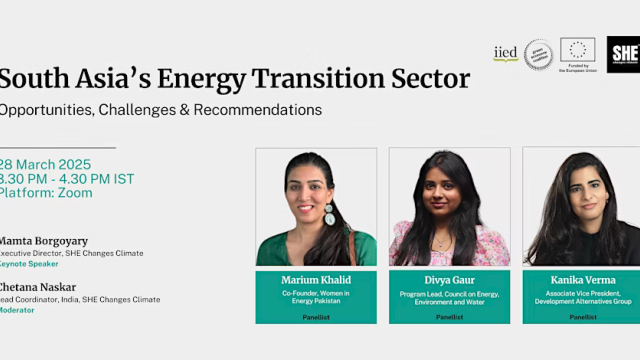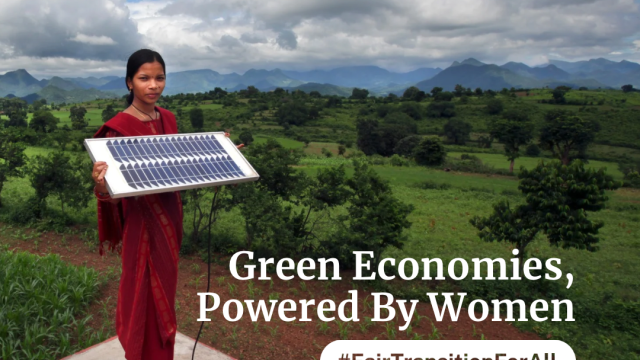Building a new social contract for a climate just world
We headed to the COP27 climate talks in Egypt with a plan: to inspire support and ownership of the ongoing agenda for a new social contract.
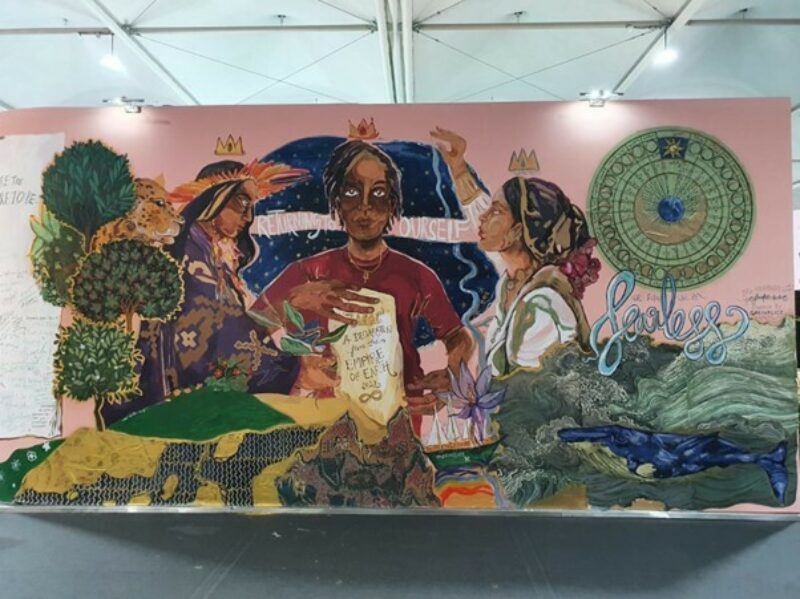
The Green Economy Coalition (GEC) headed to the climate conference in Sharm El Sheikh with a plan: to inspire support and ownership of the ongoing agenda for a new social contract. By social contract we mean the unspoken agreement that establishes mutual accountability between people, governments, business and we argue, nature – a new social contract that leads to an economy and society where all life flourishes.
We engaged diverse voices, from civil society, advocacy, philanthropy and policy communities and explored how a new social contract could generate trust and accountability for just climate action; the mechanisms that could build new social contracts; and opportunities to build alliances to reimagine a just and sustainable world
A broken promise
The current social contract is broken for the 1.2 billion young people who will live with the long-term impacts of climate change, for Indigenous people who steward the planet’s biodiversity so critical to climate action and for people of colour who continue to bear the dual burden of racial and climate injustice. It is equally broken for many others.
The breakdown of trust, in public and private institutions, in multilateral systems, in the international finance system, was evident in Egypt. To restore trust, we will need much more than empty promises (and coffers) to centre equity and justice in climate actions. We need new social contracts that explicitly tackle…
“ In June 2022, youth climate activists put the social contract on trial, issuing a guilty verdict. Guilty of ignoring the science. Guilty of thinking and working in siloes. Guilty in our blindness to our dependence on nature.”
…intergenerational justice
The voices of children and youth at CoP27 offered not only among the most creative spaces for climate action and innovation, but also expressed the energy and hope we can generate when we work together for a different world. Young people were not only in the civil society pavilions, but they were also beginning to occupy spaces and negotiating as part of country delegations. A marked shift in the integration of children’s and youth rights in nationally determined contributions is a step in the right direction, but much more transformative actions are required in climate investments and strategies.
Their energy reminded me of the youth jury GEC convened in June 2022 at the People’s Global Summit, when youth climate activists put the social contract on trial, issuing a guilty verdict. Guilty of ignoring the science. Guilty of thinking and working in siloes. Guilty in our blindness to our dependence on nature. A new social contract must work for children and youth, for the generations that will live and work and eat and breathe on this planet. A generation that seems to understand very well that “We are Nature”, and that we need a world where all life flourishes.
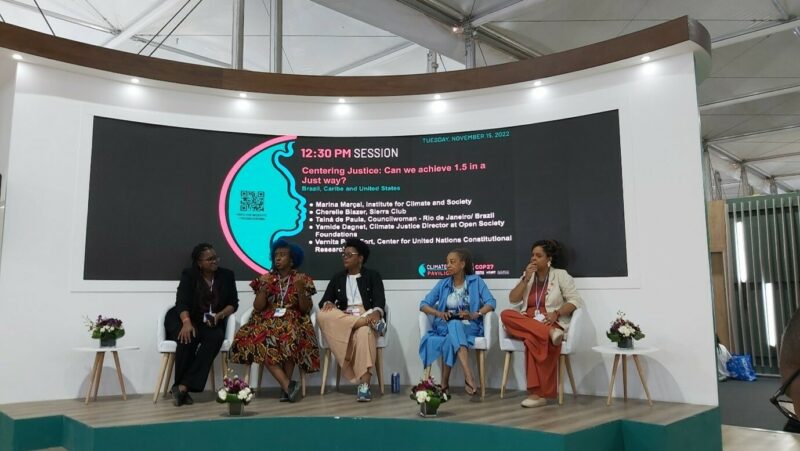
…gender, environmental and climate justice
The link between racial and climate justice emerged in several spaces. It was heard in the voices of women and men that that called for climate action and innovation to confront rather than reproduce the patriarchy that blights our communities, institutions and policies. In the stories of communities who bear the brunt of environmental, climate and racial injustice. In the pain of community leaders campaigning and dying in their fight for clean air, decent work, land rights, potable water and a safe climate.
While it was heartening to hear how just transitions policy and investment processes was being implemented in Spain, in South Africa, in Indonesia – I found myself oscillating between the climate justice and just transitions pavilions wondering and asking: Why aren’t just transition and climate justice movement talking to each other? Why aren’t we joining forces? If we want to achieve climate justice, in the factories, in the favelas and in the forests – we need to stand in solidarity for just transitions – and build an irrefutable case for a climate just world where all people, and Nature, thrives.
…and visions and mechanisms to imagine a new economy and society
We are facing multiple, escalating and interconnected social and ecological crises that cannot be tackled alone, because they all arise from the same underlying problem: the rules that govern our economies are fundamentally broken. The IPCC AR6 WGIII Report calls for “deep economic and structural changes,” from “the status quo of a global high-carbon, consumption, and GDP growth-oriented economy… to a low-carbon, energy services, well-being and equity-orientated economy”.
Actions for ambitious economic transformation and the social mandate to drive just climate action remain underwhelming. Climate actions are unlikely to attract broad public support unless they are informed by the needs and concerns of ordinary people. Without societal mandate and demand, governments and businesses are unlikely to act with the purpose, ambition, transparency and accountability needed to avoid the climate catastrophe we’re heading towards.
“ Defining a new social contract based on the wellbeing of all people and of the planet, requires the transformation of our economies and societies.”
Accountability measures to test the temerity of the Paris Agreement must draw on the deliberative wave that encompasses diverse mechanisms for citizen deliberation, action and voice. These include climate citizen assemblies, just transition dialogues and commissions, deliberative policymaking, citizen engagement in NDC and SDG processes and in some cases, climate litigation. These mechanisms enable citizens and key constituencies to shape the outcomes of climate and economic policies and investments – and hold governments and increasingly business to account for climate action and inaction.
Defining a new social contract based on the wellbeing of all people and of the planet, requires the transformation of our economies and societies. We have a once-in-a-generation chance to fundamentally alter the rules of the economic game and forge a new social contract that helps create a just, climate-resilient and sustainable world. We invite you to sign up to the People’s Accord towards a New Social Contract and join a growing movement working for social, climate and economic justice.
- Najma Mohamed
